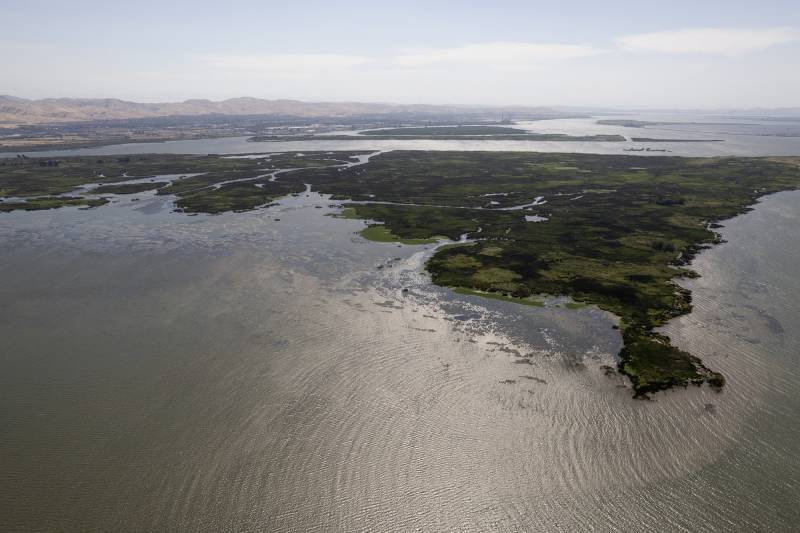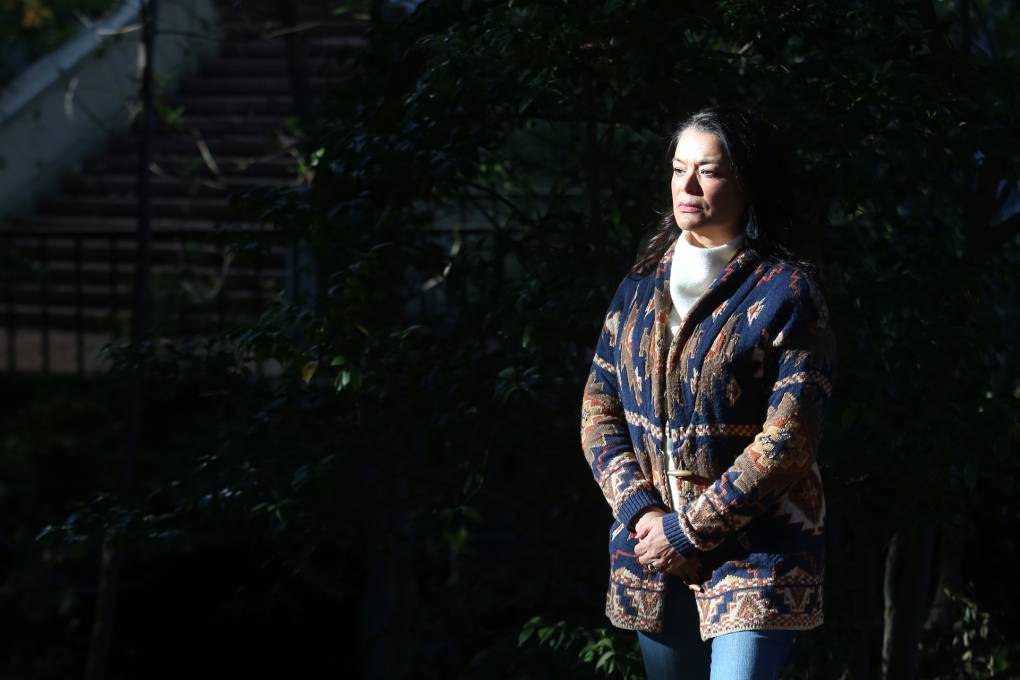The Biden administration’s environmental justice office is investigating whether California’s water agency has discriminated against Native Americans and other people of color by failing to protect the water quality of San Francisco Bay and the Sacramento-San Joaquin Delta.
California Tribes, Environmental Groups Urge EPA Probe of State Water Board

The U.S. Environmental Protection Agency’s investigation was triggered by a complaint filed by tribes and environmental justice organizations that says the state Water Resources Control Board for over a decade “has failed to uphold its statutory duty” to review and update water quality standards in the Bay-Delta.
“It’s pretty bad when California Indians have to file a complaint with the Federal Government so that the State doesn’t violate our civil rights,” Gary Mulcahy, government liaison for the Winnemem Wintu Tribe, said in a statement.
The state water agency has allowed “waterways to descend into ecological crisis, with the resulting environmental burdens falling most heavily on Native tribes and other communities of color,” the complaint says.
The groups also said the agency “has intentionally excluded local Native Tribes and Black, Asian and Latino residents from participation in the policymaking process associated with the Bay-Delta Plan,” according to an EPA letter to the state dated Tuesday (PDF).
Jackie Carpenter, a spokesperson for the water board, said the agency will cooperate fully and “believes U.S. EPA will ultimately conclude the board has acted appropriately.”
“The State Water Board deeply values its partnership with tribes to protect and preserve California’s water resources. The board’s highest water quality planning priority has been restoring native fish species in the Delta watershed that many tribes rely upon,” Carpenter said in an emailed statement.
The watershed is the heart of California’s water supply: Covering about 20% of California, it includes the Sacramento and San Joaquin river systems and is a vital water source for 27 million Californians and 750,000 acres of farmland.
The Bay-Delta is experiencing an “ecological crisis,” (PDF) state water regulators have said, including a “prolonged and precipitous decline in numerous native species,” such as endangered winter-run Chinook salmon and the tiny Delta smelt. Intensifying water development, diversions and dwindling freshwater flows have exacerbated the crisis. And the relentless push of salt water into the Delta and blossoming harmful algal blooms have left farmers and residents desperate for solutions.
Healthy waterways and fisheries are critical to the culture and diet of the Shingle Springs Band of Miwok Indians and Winnemem Wintu Tribe. Harmful algal blooms, low flows and water contamination also prevent people of color in South Stockton and other communities from using waterways in their neighborhoods for recreation or subsistence fishing.
The EPA’s decision to investigate comes as water board scientists prepare a staff report on updating the Bay-Delta’s water quality plan. Carpenter said the report will evaluate certain tribal beneficial uses.
Among the possible approaches considered in the updated plan will be a $2.6 billion deal that Gov. Gavin Newsom struck last March with major water suppliers and agricultural irrigation districts (PDF), which voluntarily agreed to address flows and habitats in the Delta.
Tribes and environmental organizations said the deal came from backroom negotiations between water suppliers and officials that excluded people of color, and that it “fails to protect the health of the estuary, its native fish and wildlife, and the jobs and communities that depend on its health.”
The complaint mentions Newsom’s voluntary agreements 52 times.
“As long as the state upholds historic water rights, that we all know to be racist and unfair, we will continue to have first- and second-class California communities,” Dillon Delvo, executive director of Little Manila Rising, an organization based in Stockton, said in a statement.
The EPA said in its letter that while an investigation “is not a decision on the merits,” the complaint meets the requirements for initiating its probe, including that “it alleges discriminatory acts by the Board which is a recipient of EPA financial assistance.”
California’s water board will have 30 days to respond, and the EPA will issue its findings within the next six months unless both sides agree to resolve the issue informally.
